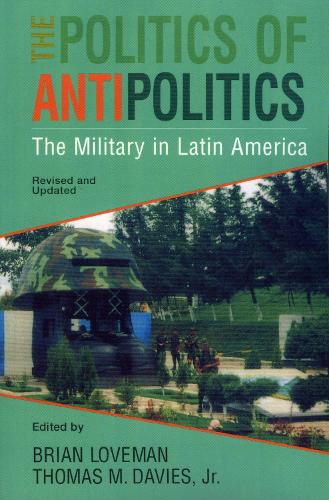
The Politics of Antipolitics: The Military in Latin America
(Paperback)
Publishing Details
The Politics of Antipolitics: The Military in Latin America
By (Author) Thomas Davies
Edited by Brian Loveman
Bloomsbury Publishing PLC
Rowman & Littlefield Publishers
1st October 1997
United States
Classifications
General
Non Fiction
Terrorism, armed struggle
Political structures / systems: democracy
Land forces and warfare
Political economy
Cultural studies
History: specific events and topics
322.5098
Physical Properties
Paperback
438
Width 231mm, Height 154mm, Spine 33mm
676g
Description
Latin America is moving toward democracy. The region's countries hold elections, choose leaders, and form new governments. But is the civilian government firmly in power Or is the military still influencing policy and holding the elected politicians in check under the guise of guarding against corruption, instability, economic uncertainty, and other excesses of democracy The editors of this work, Brian Loveman and Thomas M. Davies, Jr., argue that with or without direct military rule, antipolitics persists as a foundation of Latin American politics. This study examines the origins of antipolitics, traces its nineteenth- and twentieth-century history, and focuses on the years from 1965 to 1995 to emphasize the somewhat illusory transitions to democracy. This third edition of The Politics of Antipolitics has been revised and updated to focus on the post-Cold War era. With the demise of the Soviet state and international Marxism, the Latin American military has appropriated new threats including narcoterrorism, environmental exploitation, technology transfer, and even AIDS to redefine and relegitimate its role in social, economic, and political policy. The editors also address why and how the military rulers acceded to the return of civilian-elected governments and the military's defense against accusations of human rights abuses.
Reviews
A valuable research tool, useful to both graduate and upper-division undergraduate levels. * Choice Reviews *
This volume remains the best compendium on this subject, and it is highly recommended. * New Mexico Historical Review *
Loveman and Davies have revised and updated their classic edited edition, and it remains a valuable contribution to the literature on military power and democracy in Latin America. * Journal of Global South Studies *
